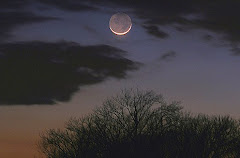Wednesday, March 25, 2009
Ursula Le Guin
I believe that all the best faculties of a mature human being exist in the child, and that if these faculties are encouraged in youth they will act well and wisely in the adult, but if they are repressed and denied in the child they will stunt and cripple the adult personality. And, I believe that one of the most deeply human, and humane, of these faculties is the power of imagination: so that it is our pleasant duty, as librarians, or teachers, or parents, or writers, or simply as grownups, to encourage that faculty of imagination in our children, to encourage it to grow freely, to flourish like the green bay tree, by giving it the best, absolutely the best and purest, nourishment that it can absorb. And never, under any circumstances, to squelch it, or sneer at it, or imply that it is childish, or unmanly, or untrue.
For fantasy is true, of course. It isn't factual, but it is true. Children know that. Adults know it too, and that is precisely why many of them are afraid of fantasy. They know that its truth challenges, even threatens, all that is false, all that is phony, unnecessary, and trivial in the life they have let themselves be forced into living. They are afraid of fantasy, because they are afraid of freedom.
- Ursula K. Le Guin -
From: The Language of the Night
For fantasy is true, of course. It isn't factual, but it is true. Children know that. Adults know it too, and that is precisely why many of them are afraid of fantasy. They know that its truth challenges, even threatens, all that is false, all that is phony, unnecessary, and trivial in the life they have let themselves be forced into living. They are afraid of fantasy, because they are afraid of freedom.
- Ursula K. Le Guin -
From: The Language of the Night
Subscribe to:
Post Comments (Atom)







No comments:
Post a Comment